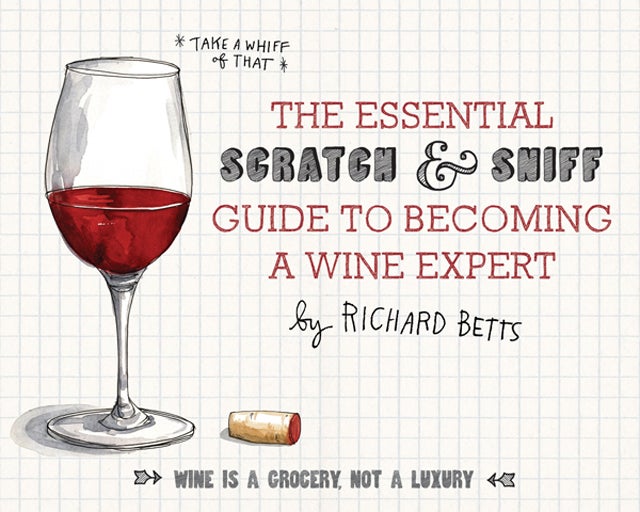 Photo: Courtesy of Houghton Mifflin Harcourt.
Photo: Courtesy of Houghton Mifflin Harcourt.
If you can't tell a good wine from a bad one, don't worry — neither can most professional wine tasters. In fact, several studies have shown that the very subjective art of rating wines is more than just imperfect. One four-year experiment demonstrated that judges, when blindly presented with one wine three times, gave the same vino vastly different scores on each tasting, thinking they were different wines. So, those ratings of 93 and 94 you see on bottles at the store? Take them with a large grain of salt.
AdvertisementADVERTISEMENT
What isn't bunk, however, is the complex mélange of aromas and flavors that make up every wine, even plonk. True wine connoisseurship comes from being able to distinguish those volatile compounds that waft up from the glass and into the olfactory bulb of your brain. Fortunately, a new book by Richard Betts helps newbies flex that muscle by doing more than just describing wine's many bouquets —
The Essential Scratch and Sniff Guide to Becoming a Wine Expert actually lets you smell them.
In his book, Betts breaks down the hundred-odd aromas often used to describe wine into four categories: fruit, wood, earth, and "other." It also looks at the typical scent components of whites and reds, explaining how to differentiate the more subtle notes among them.
But, at only 10 pages long and resembling a children's book more than Jancis Robinson's Oxford Companion to Wine, the Scratch and Sniff Guide won't dive too deep into the complex chemical soup that makes up every bottle — and it probably couldn't. The Guardian reports that an Austrian wine scientist identified "27 distinct organic acids in wine, 23 varieties of alcohol in addition to the common ethanol, more than 80 esters and aldehydes, 16 sugars, plus a long list of assorted vitamins and minerals that wouldn't look out of place on the ingredients list of a cereal pack." Whoa.
And, while NPR's Michaeleen Doucleff notes that the book's smells themselves aren't especially true to life, Betts says that's not the point. "It's not about saying that this smell is the most faithful recreation of peach in a glass of wine," he tells NPR. "But, the book gets you thinking about what you like and don't like — and talking about them in terms of vocabulary [readers] already have, not in 'wine speak.'"
So, forget the scores, and learn to trust your nose. (NPR)